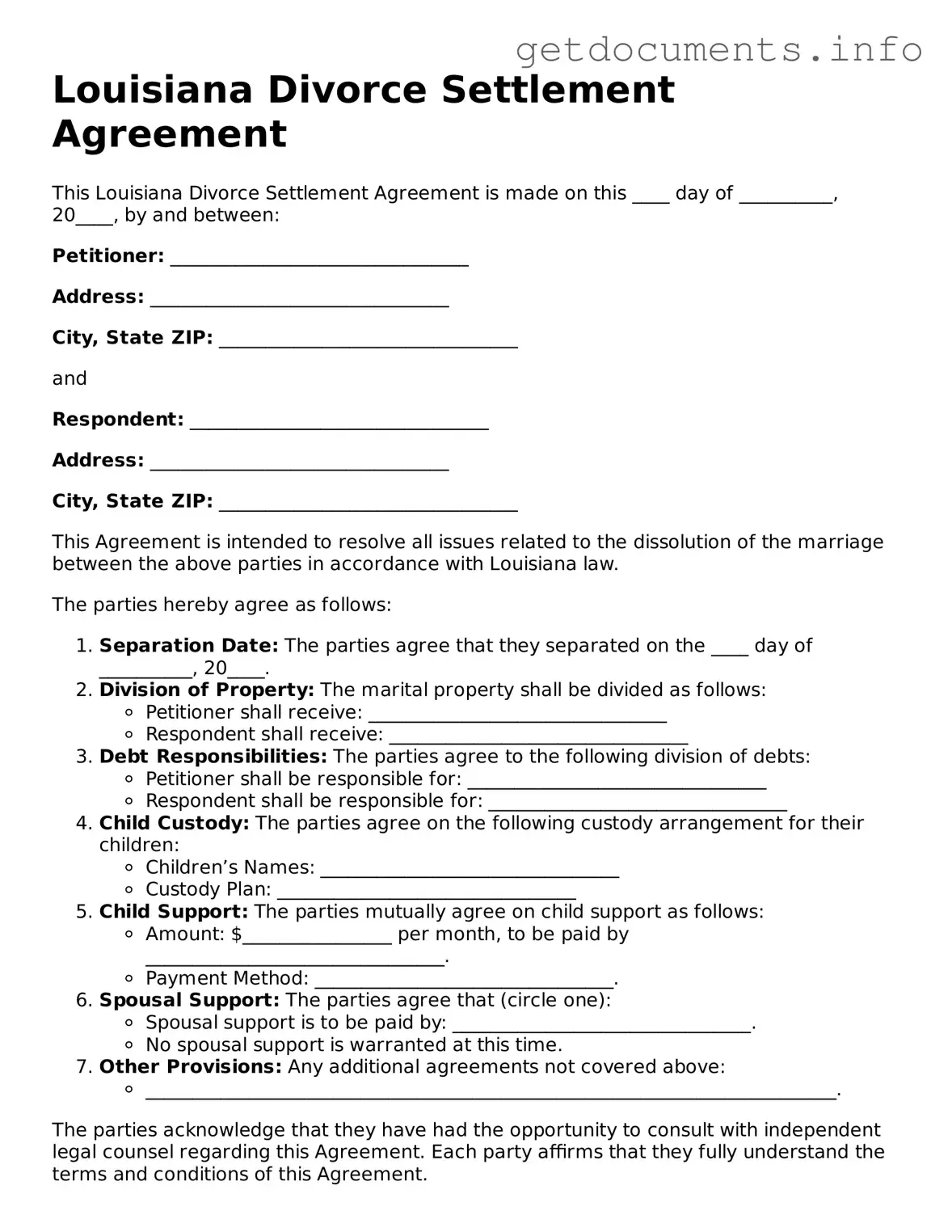Free Divorce Settlement Agreement Template for Louisiana
The Louisiana Divorce Settlement Agreement form is a legal document that outlines the terms agreed upon by both spouses during a divorce. This agreement typically covers important aspects such as property division, child custody, and spousal support. To ensure a smooth process, it's essential to fill out this form accurately and completely.
Ready to get started? Fill out the form by clicking the button below.
Access Divorce Settlement Agreement Editor

Free Divorce Settlement Agreement Template for Louisiana
Access Divorce Settlement Agreement Editor
Got places to be? Complete the form fast
Fill out Divorce Settlement Agreement online and avoid printing or scanning.
Access Divorce Settlement Agreement Editor
or
⇩ PDF File
